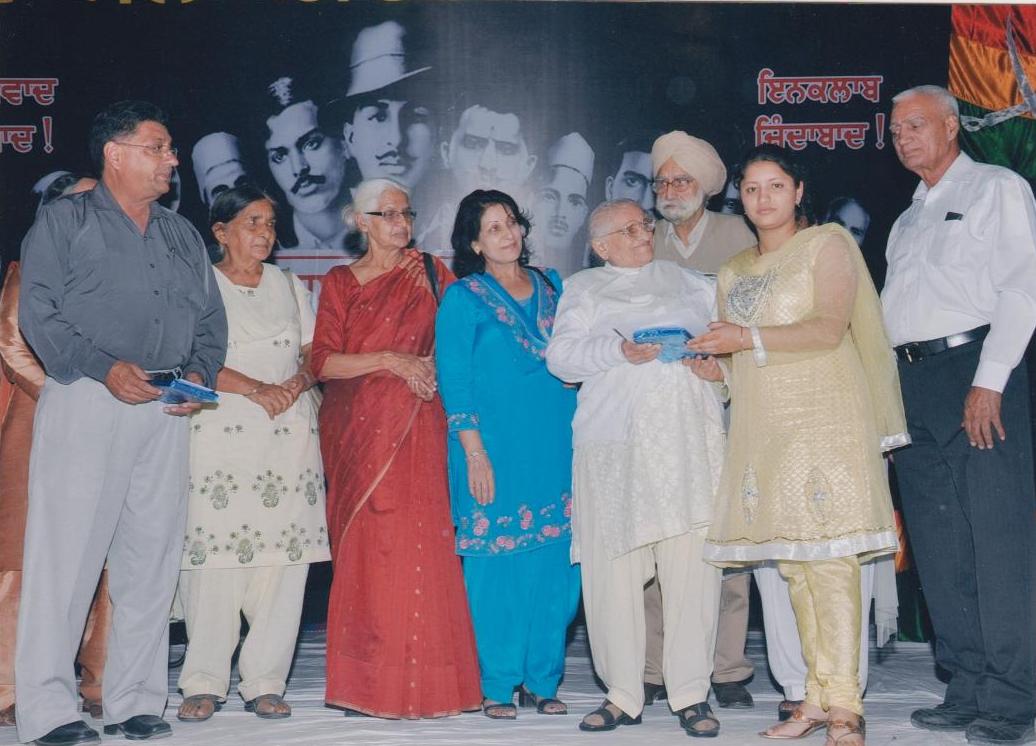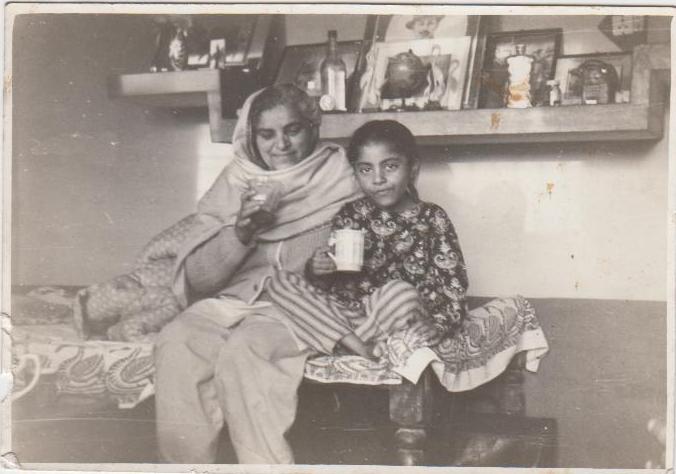The unsung hero(ine) of India’s fight for freedom. Meet Sushila Chain Trehen, who fought against the British, educated young girls in rural Punjab against everyone’s will, and dedicated every single minute of her life towards the nation’s social good. Read her inspiring story of courage and determination.
Sushila Chain Trehen may not be as famous as Jhansi ki Rani or Shaheed Bhagat Singh or Mother Teresa, but her own commitment and determination in fighting for the freedom of India and her own efforts in educating and liberating women, especially in Punjab, have been no less spectacular or significant.
Since India’s Independence, she had been contributing towards the social good of the nation until her death on 28th September, 2011.

Born on July 1, 1923 in Pathankot, Punjab, Sushila was the youngest of four siblings and had a reputed family background as her father, Mathuradas Trehen, was a contractor, one of the founder members of Congress Party in his area and also a leading member of Arya Samaj.
It is amazing how much a single event can change a person’s life, especially that of a teenager as she was during one of the open meetings presided by her father as leader of the community in the Arya Samaj temple in Pathankot.
To disrupt the meeting, the police, then belonging to the British Raj, surrounded the stage and started beating up the people who were present there to witness the meeting. People were brutally injured and no mercy was shown by the police. Sushila witnessed this at the tender age and could not understand the reaction of the police, but it made her furious. She decided then and there to fight against injustices. She had also heard of people like Bhagat Singh who were fighting against the British Rule for the freedom of India, and was deeply inspired by them.
Whilst all this was going on in her mind, Sushila lost her dad who died under mysterious circumstances. Although her father was wealthy, after his death, the family lost everything.
Needless to say, all these events made her angrier when soon after her father’s death, she and her family had to depend on others for their day-to-day needs and their survival. She was only a teenager, and being a girl was even more difficult in those days.
As destiny would have it, at this time Sushila came across one of her teachers Shree Pandit Dev Dutt Attal who too was a freedom fighter. Sushila was given a book by her teacher and by now her mentor, titled “Gandhiwaad and Samajwaad”.
This is how her hunger grew to do something for India’s freedom. It was around this time that she came across another lady named Shakuntala Azad in 1941. By now, Sushila was an 18-years-old teenager. She decided to leave home in pursuit of her cause, as she was quite serious in continuing her struggle for the freedom of her motherland, India.
It was also after reading the book Gandhiwaad and Samajwaad that she learnt to control her anger and not think of revenge against anyone. She was introduced to other freedom fighters and the Communist Party leaders who were all sharing their common cause of fighting for the freedom of India and raising their voice against the then Capitalist Society.
While she was busy attending meetings, she also visited homes in the remote villages in Punjab in her spare time. She had decided to encourage and teach the girls in the villages to sew, etc., besides the usual house tasks like cooking and cleaning. She felt that such skills would make them self- dependent if need be, in the future.
Sushila used to ride a bicycle while visiting people, and riding a bicycle was not encouraged for a girl in a village during those days. She traveled far and wide in her efforts to educate the young girls against all sorts of objections and discouragement of the parents and the general public in the villages. As she was also a freedom fighter, she was doing all these activities being “underground” from the British Raj authorities.
At this time she wanted to join other leaders in the Kirty Party. But she was strongly discouraged, as the party mostly consisted of men, and they thought that as she was a girl of such a young age, she may not be able to endure any hardships and punishments delivered by the police force. This was in Lahore.
But Sushila was determined and she had decided to fully commit herself to the common cause of fighting for India’s freedom and nothing would discourage her or make her change her mind.
It was at this time that she decided to write a letter to her own family asking them to not look for a groom for her as she had decided to continue her work with her fellow freedom fighters. But then, Sushila met her future husband, Chain Singh Chain, who was also a freedom fighter in the same Kirty Party that she was a part of by now.
It was during the Kirti Kisan Morcha and other such events that she, together with other freedom fighters including women, displayed an amazing feat of courage by tolerating torture and police lathi charges in spite of sustaining wounds and being mishandled.
After Independence, Sushila continued her involvement in activities that fostered social good in the country and was always part of the team that was fighting against social injustice. Sushila had always been supportive of causes such as schools, and similar institutions. As she was always in favour of education and progress of the younger community, she was a leading personality in the committees which played their part in the opening new schools in Punjab – three of those were schools for girls and one was co-ed.
Sushila and her husband lost three children at a very young age as they were hiding from time to time from authorities and fighting for the cause which they strongly believed in. They were totally committed and dedicated in everything they did. For them, serving the nation was always a priority. Their only surviving child, Savita, too had to move from place to place with friends, relatives, and other kind people’s homes for her survival.
Sushila was also a founding member of the local “Stree Sabha” in Jallandhar and remained so even when she was unwell. Until her last breath she was a fighter, and stood up, as always, for the cause of fighting any injustice. Stree Sabha in Jallandhar is continuing to work for the same causes that Sushila believed in. May organisations like that continue to do good.
Like this story? Or have something to share? Write to us: contact@thebetterindia.com, or connect with us on Facebook and Twitter (@thebetterindia)
If you found our stories insightful, informative, or even just enjoyable, we invite you to consider making a voluntary payment to support the work we do at The Better India. Your contribution helps us continue producing quality content that educates, inspires, and drives positive change.
Choose one of the payment options below for your contribution-
By paying for the stories you value, you directly contribute to sustaining our efforts focused on making a difference in the world. Together, let's ensure that impactful stories continue to be told and shared, enriching lives and communities alike.
Thank you for your support. Here are some frequently asked questions you might find helpful to know why you are contributing?

